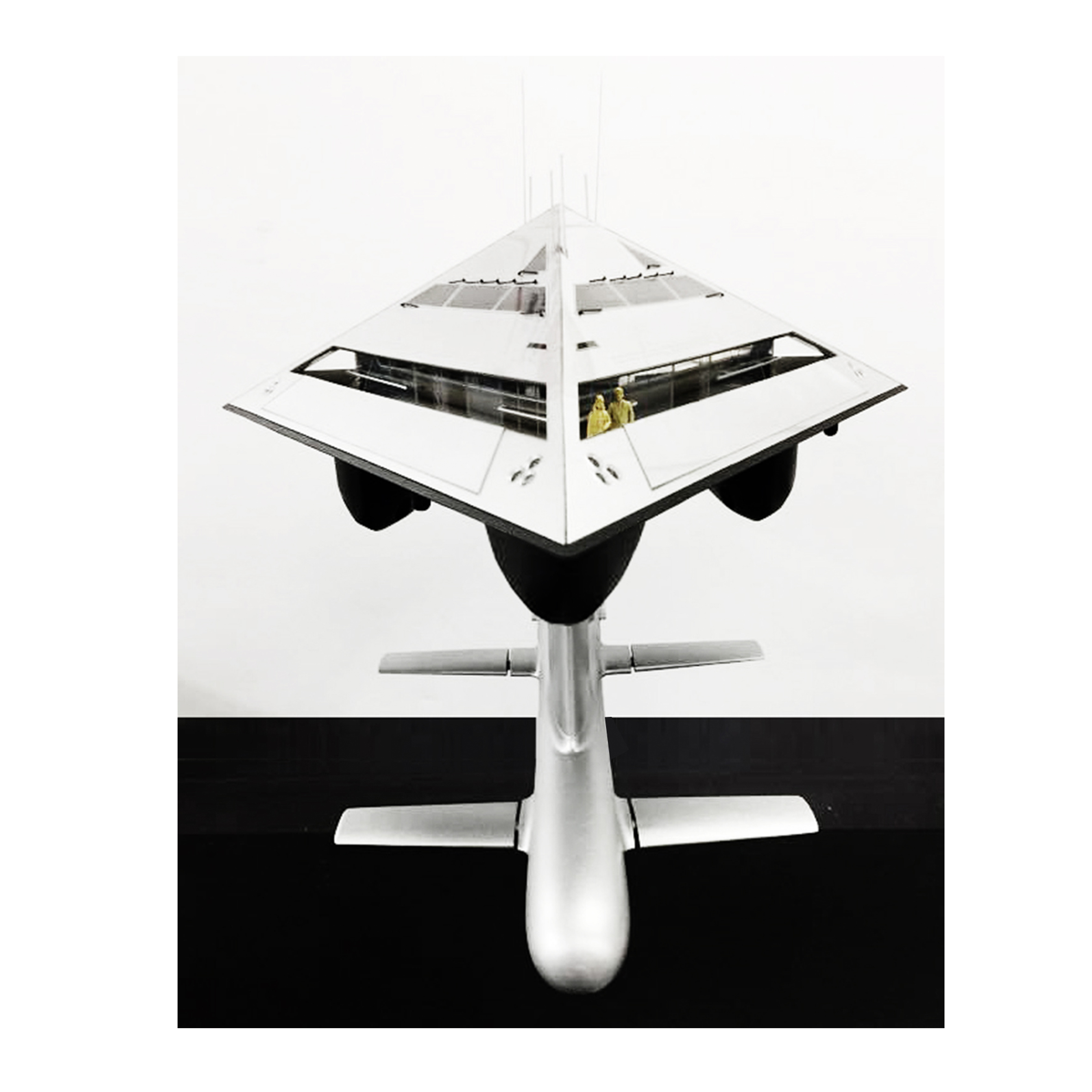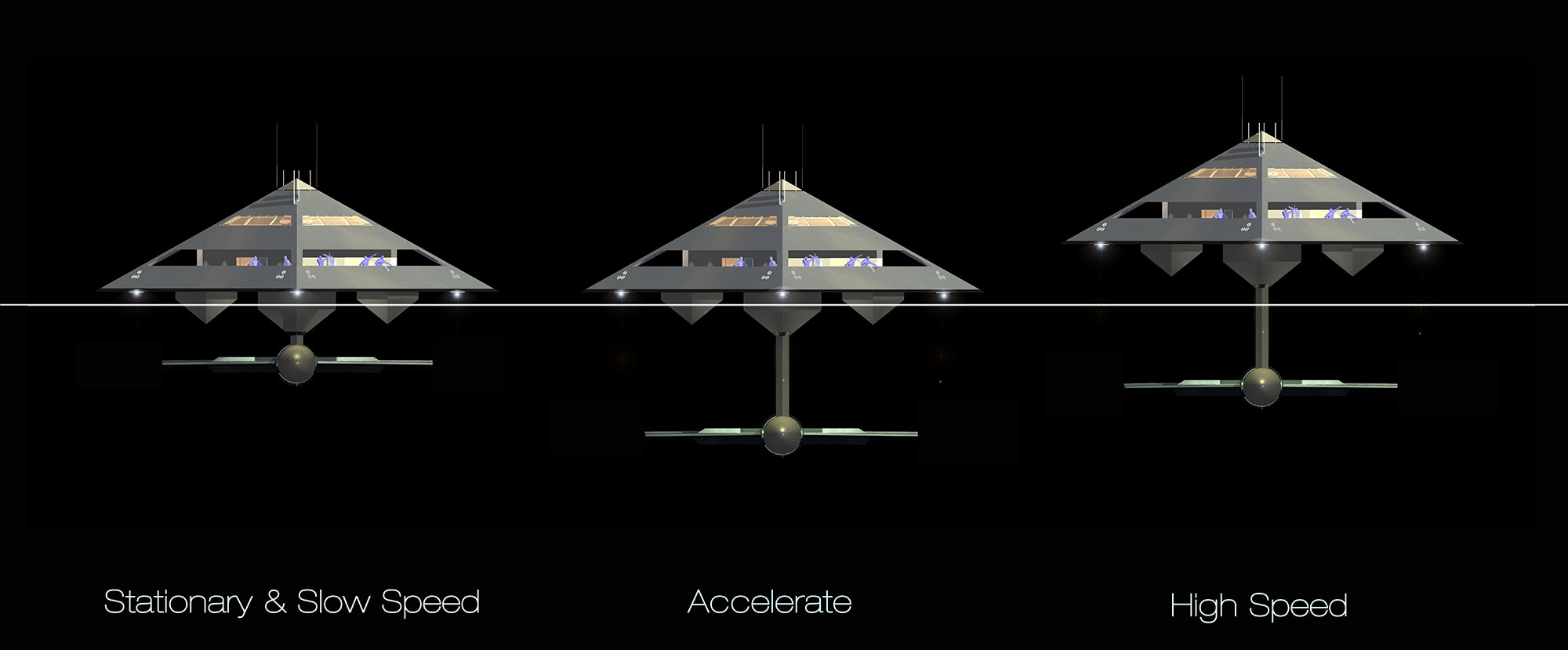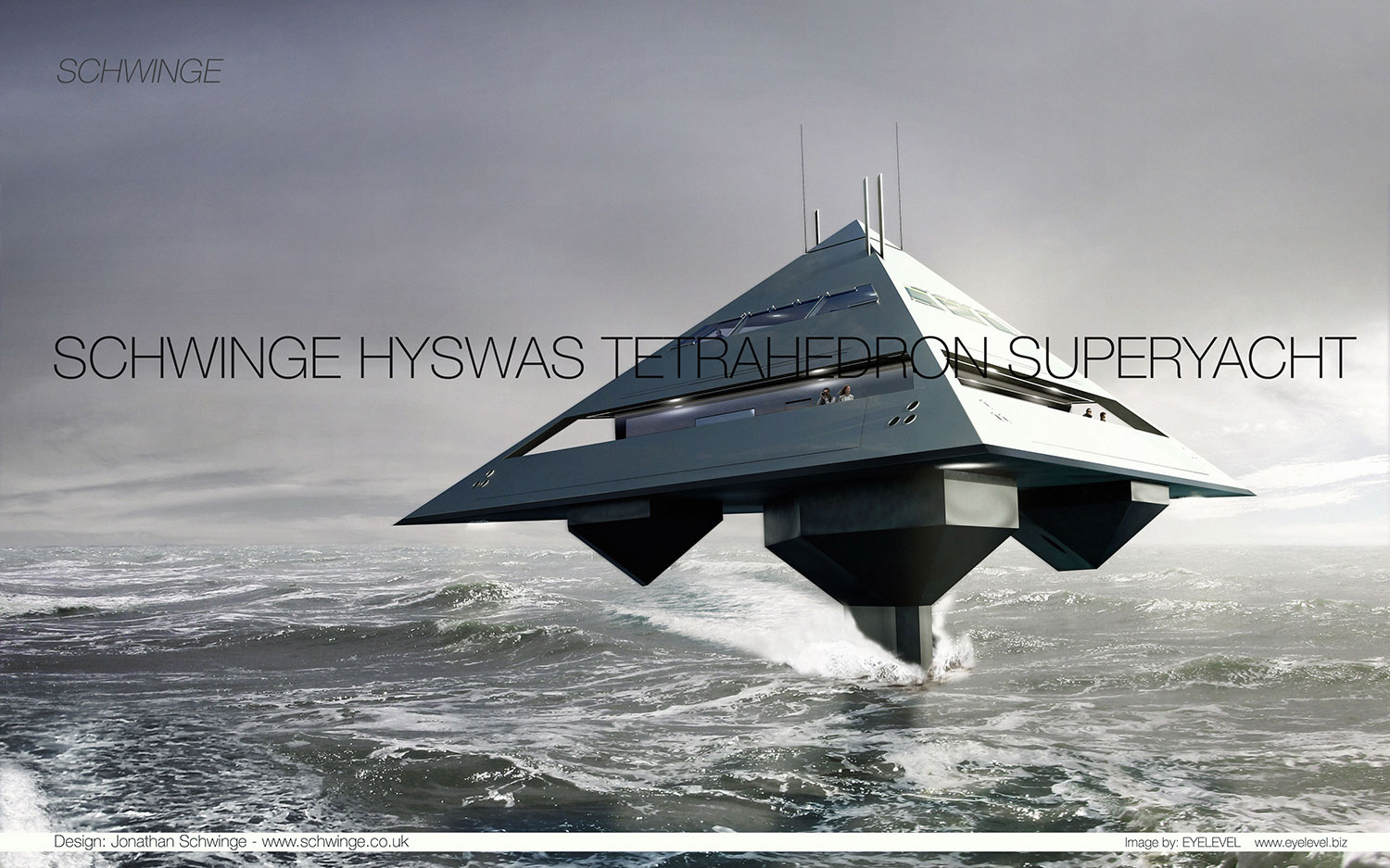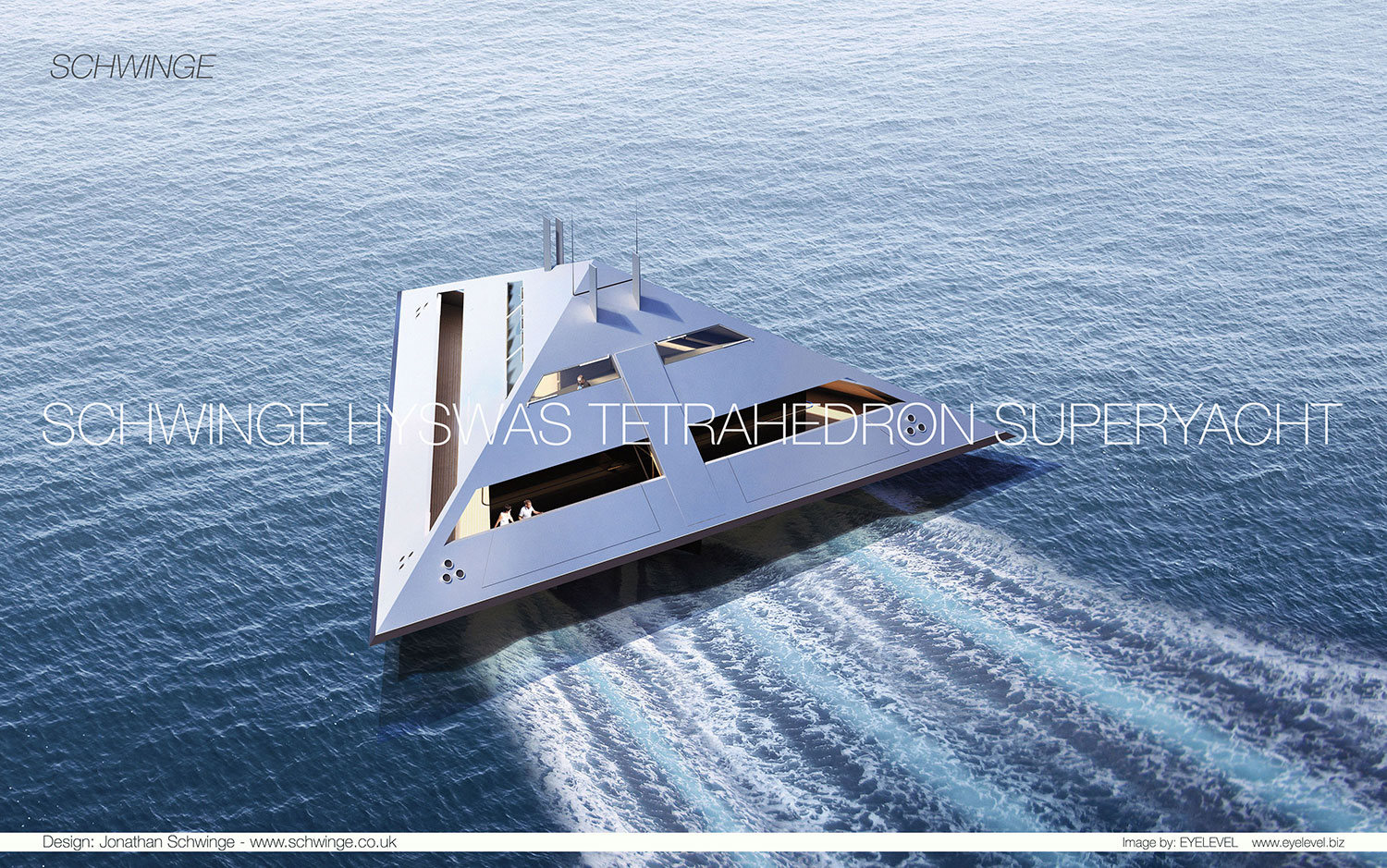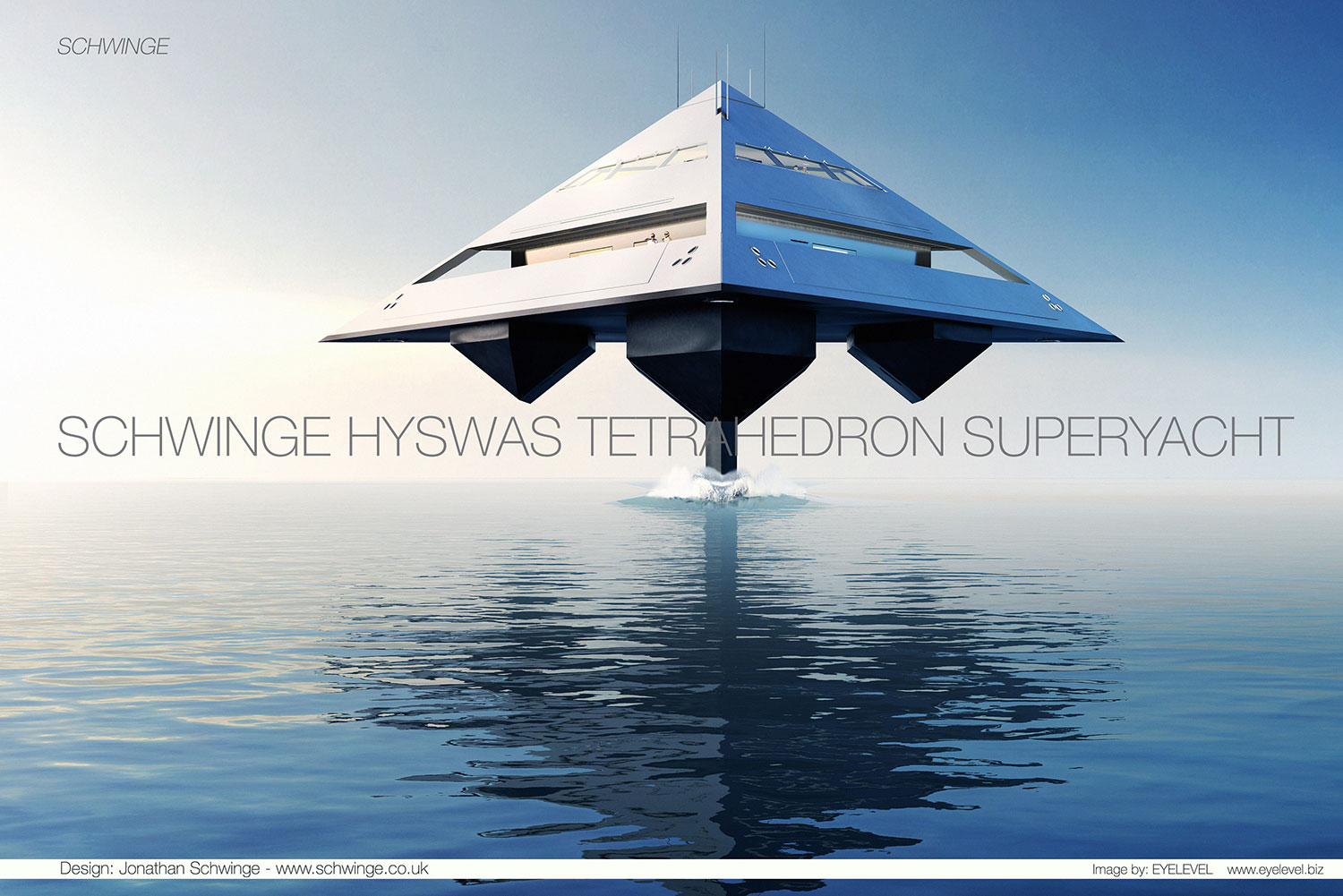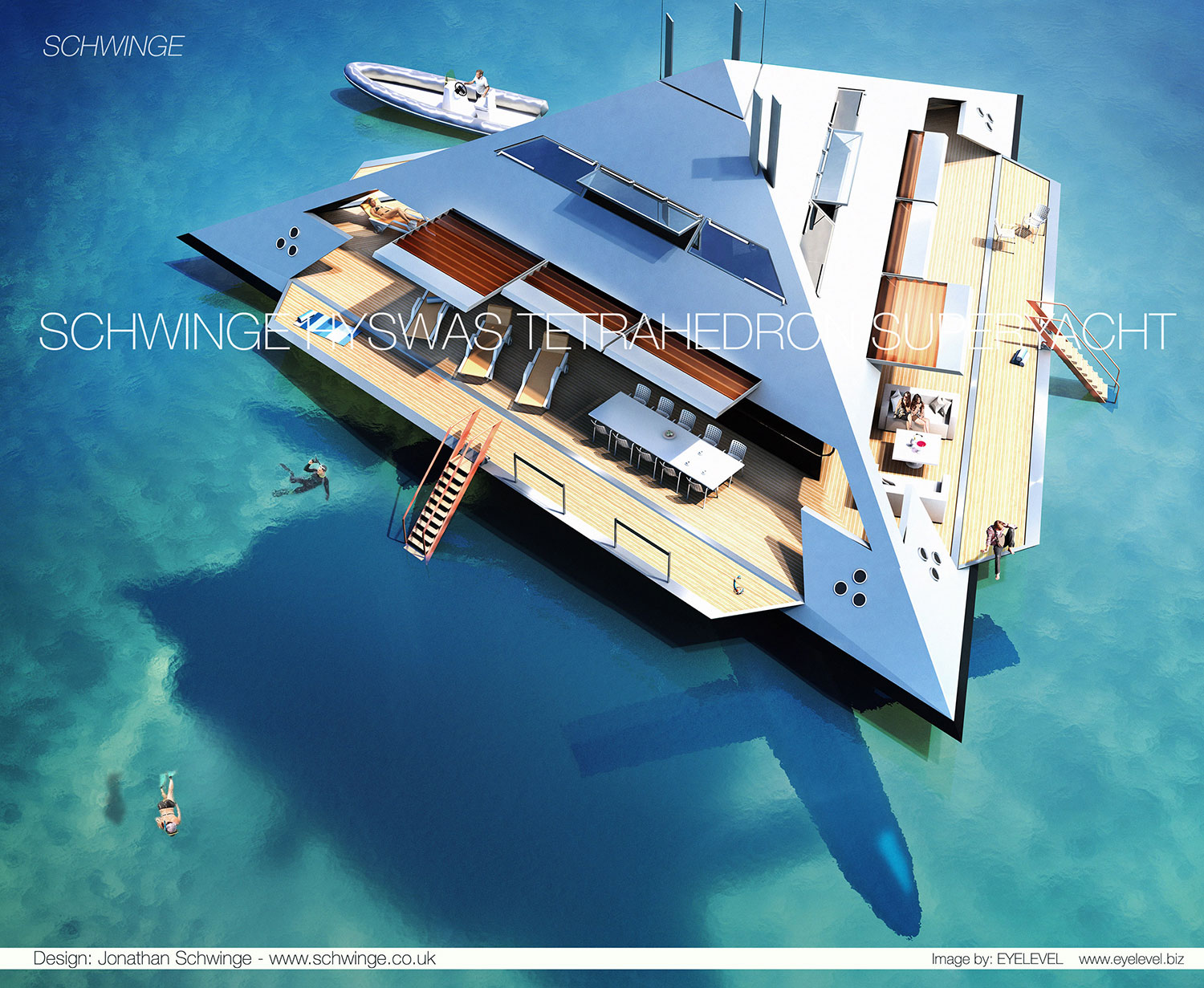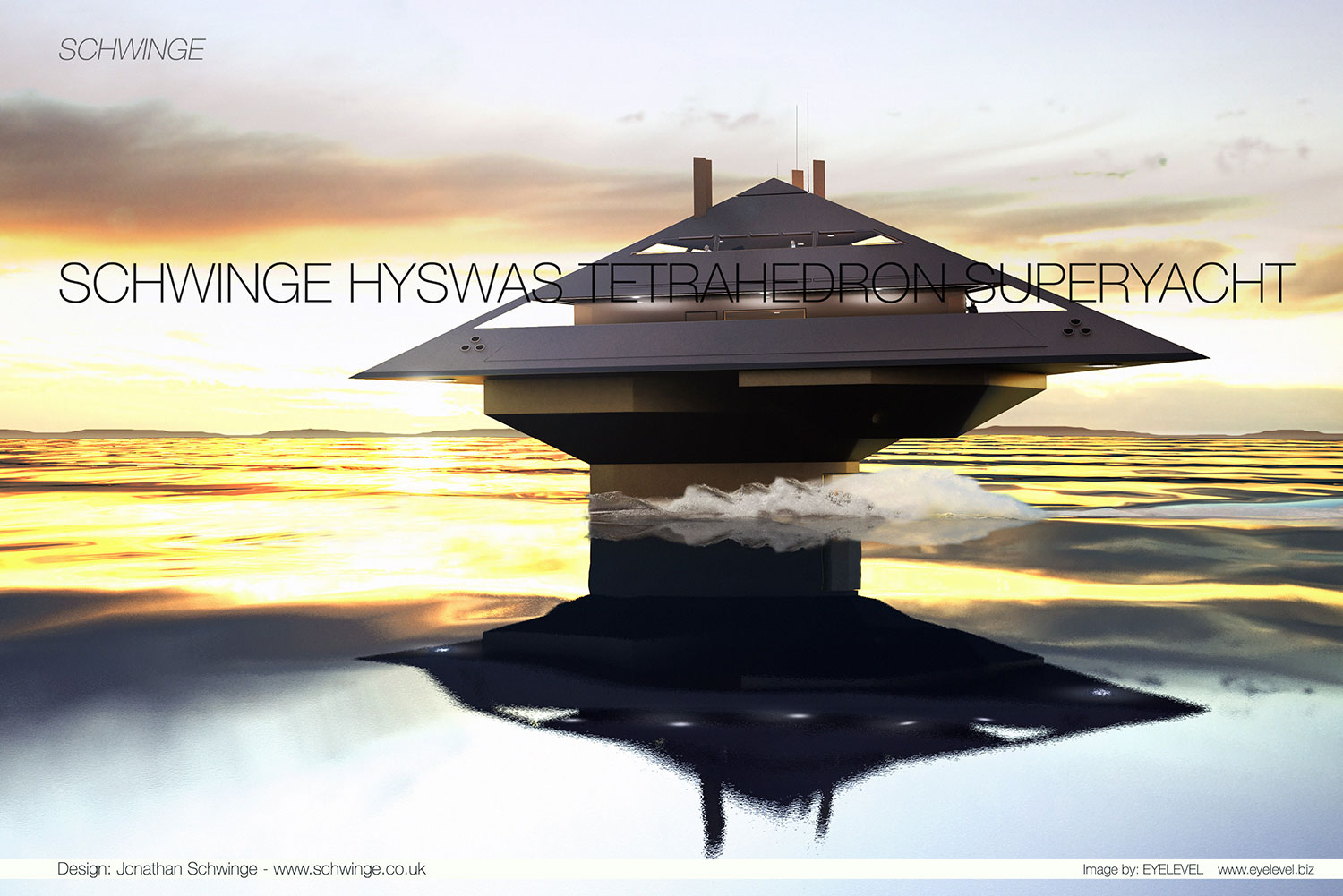Schwinge HYSWAS Tetrahedron Super Yacht – Aviation on the Sea
HYSWAS propulsion at concept stage with
The Maritime Applied Physics Corporation, Baltimore, USA
The Architecture of the Tetrahedron Super Yacht.
The design is instigated by the re-thinking of the form, superstructure and propulsion of the modern super-yacht into a radically simple enclosure and an elevated mode of travel above the water line.
The superstructure form is reduced to the absolute geometry of a Tetrahedron. A three-based pyramid consisting of 4 faces and 6 leading edges provides fundamental stability and enclosure. Its form produces a pure, precise, logical and mathematical ‘roof’ from which to connect to the hull assembly. Generally, simple forms are not known in ship and motor yacht construction through restrictions in ocean-going hull design.
Aviation on the Sea.
The Tetrahedron would have the appearance at high-speed of ‘levitating’ over the water: a boat that can fly. This is produced by a HYSWAS hull - A Hydrofoil Small Waterplane Area Ship - that is comprised of a single vertical strut onto a single submerged ‘torpedo’ hull. The vessel will lift out of the water at speed on side-mounted adjustable hydrofoils.
This hull form has two working ‘waterlines’ for its operation. At low speed the Tetrahedron sits gently onto three underbelly hulls. At high-speed the hydrofoils rotate on the lower submerged hull, causing the effect of mysteriously raising the triangle out of the water.
The concept design of this HYSWAS craft is based upon an existing hull design which has been developed by several companies, notably the Maritime Applied Physics Corporation in America, and has been proven by their technology demonstrator - ‘The Quest’ - in 1995.
An auto-pilot ‘fly-by-light’ system from the aviation industry would take control of difficult roll forces and maintain ‘foil bourne’ speed. This would also control pitch and heave.
Long distances are achievable with reduced out-of-water drag and stormy ocean conditions would incur virtually no slamming. Improved efficiency is driven by elevated hydrofoil propulsion and would be an inherent performance benefit of this type of design.
Long distance, smooth travel through rough water at high speed: the key performance attributes of this new motor yacht design.

